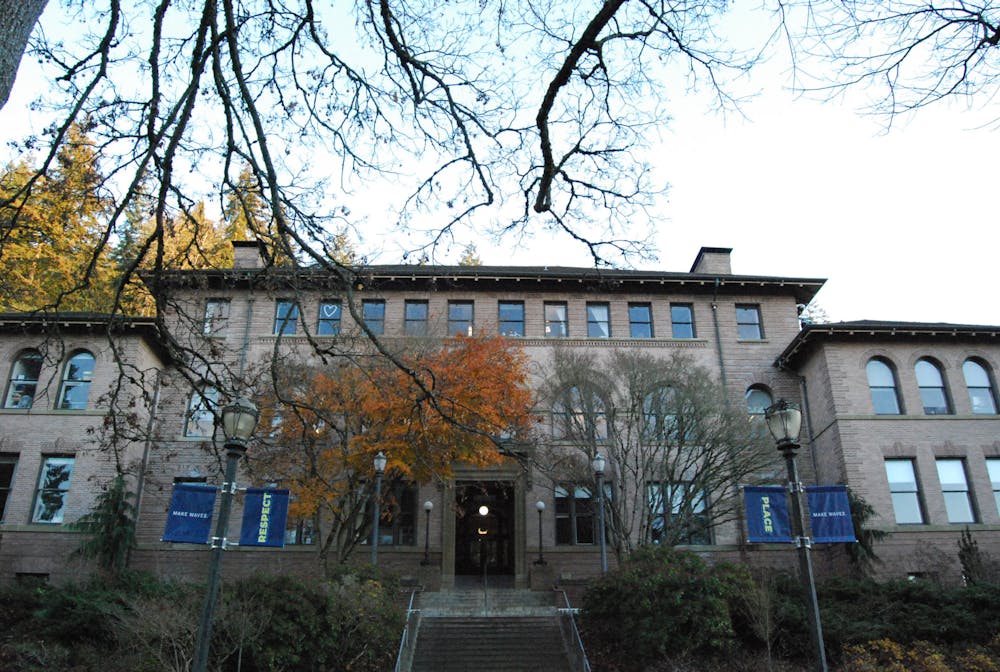During the school year, Western Washington University operates a bit like a clock. From the teachers to the facilities to the technology, everything works together to bring students the best education possible. One cog in the WWU clock that often goes unappreciated, however, is the teaching assistants who ensure that classes go smoothly campus-wide.
Restricted to enrolled graduate students, earning a teaching assistantship can be an educational and fruitful addition to a student’s grad school experience. By sitting in on and instructing classes, TAs can strengthen their knowledge and prepare for future careers.
“A big part of what I’m doing is learning to become a better teacher,” said Evan Krautkremer, a TA liaison for a math course, who plans on going into teaching. “It’s so helpful to get some teaching experience before being thrown into the deep end.”
Krautkremer’s role as a TA liaison is a bit different from the standard TA job. Instead of leading the class on his own, he observes and assists students working in smaller groups, outside of active instruction.
Garrett Dubofsky, the instructor whom Krautkremer works with, said having a TA helps the class run smoother and ensures that every student is receiving the help they need.
“Having Evan in my classroom has been great. It's good to have another set of eyes and ears to analyze how the students are taking in the information, how they're processing it and how well they're doing,” Dubofsky said. “That's some of the most valuable information you can gain when you're in the classroom.”
However, being a TA isn’t for the faint of heart. While it may be an excellent learning experience for willing graduate students, it comes with a hefty workload, according to Erin Grimes, a math TA and second-year graduate student at Western.
“We're teaching classes; there's office hours, prep work, grading exams, responding to student emails and helping students with any difficulties,” Grimes said. “It adds up to a really heavy workload. And it is, of course, on top of graduate-level classes.”
All of the work TAs do across campus is not in vain. Western’s administration notices the value each TA brings to their respective program and the help they provide undergraduate students.
“TAs are a really important part of the Western educational experience,” said David Patrick, the dean of the graduate school at Western. “They enliven performances. They accelerate research. They do all these things that bring that higher level of learning to the undergraduate space.”
Western isn’t the only place impacted positively by their TAs. Paul Lukacs, the senior associate dean of research and graduate studies for the W.A. Franke College of Forestry and Conservation at the University of Montana, shares Patrick’s sentiment.
“I think [teaching assistants are] great. They get a chance to get some experience in the classroom for those students who may think that [a career in academia] might be in their future,” Lukacs said. “They get a stipend and tuition waiver, so it's financially beneficial too.”
The financial aspect of being a TA can be a very important factor for many students. At Western, students will receive a partial or full tuition waiver and an additional stipend on top of that, as long as they are funded by the graduate school.
“If I didn't get this TA position, I would have probably reconsidered grad school,” Krautkremer said. “Your tuition is paid for and there's a stipend on top of that, so we can survive. It’s pretty awesome.”
For students interested in learning more about teaching apprenticeships, more information can be found here.
Aidan Hadley (he/him) is a campus life reporter for The Front this quarter. He is a third-year student at WWU studying news/editorial journalism. Outside of reporting, Aidan enjoys baking, eating good food and finding a new TV show to watch. You can reach him at aidanh.thefront@gmail.com.






